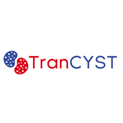EU-Funded Project

Abbreviation:
TranCYST
Title:
Translational research (training) in PolyCYSTic Kidney Disease.
In short:
Training programme investigating the molecular mechanisms of autosomal dominant polycystic kidney disease.
Tags:
Human R&D, Training, Innovation
![]()
![]()
![]()
Project Details
Funding scheme:
FP7-PEOPLE-2012-ITN – Grant Agreement ID 317246
Time frame:
1 December 2012 to 30 November 2016
Weblink:
Description:
Autosomal dominant polycystic kidney disease (ADPKD) is an inherited kidney disorder with a prevalence of more than 1:1000. Patients develop renal cysts, and slowly progress towards end-stage renal disease. Available therapy is directed towards limiting the morbidity and mortality from these complications, while effective targeted treatments are lacking. Therefore, innovative approaches are necessary to unravel disease mechanisms and develop novel interventions. To this end, the EU-funded TRANCYST project designed a multidisciplinary programme for training young scientists in ADPKD research and treatment development. Different animal (mouse, zebrafish) and cell models were generated to investigate disease mechanisms. The network covered a broad spectrum of research projects and technologies centered around the aim of translating basic research findings to the clinic. GenomeScan supervised the work of experienced researcher (ER) who generated a wealth of Next Generation Sequencing (NGS) data that contributed to validation of preclinical disease models and new insights into disease mechanisms.
Output:
Meta-analysis of polycystic kidney disease expression profiles defines strong involvement of injury repair processes. Malas TB, et al. American Journal of Physiology-Renal Physiology. 2017 Apr 1;312(4):F806-17. doi: 10.1152/ajprenal.00653.2016
Prioritization of novel ADPKD drug candidates from disease-stage specific gene expression profiles. Malas TB, et al. EBioMedicine. 2020 Jan 1;51:102585. doi: 10.1016/j.ebiom.2019.11.046.
Acknowledgements:
![]() This project has received funding from the European Union’s Seventh Framework Programme (FP7/2007-2013) under grant agreement No 317246.
This project has received funding from the European Union’s Seventh Framework Programme (FP7/2007-2013) under grant agreement No 317246.

